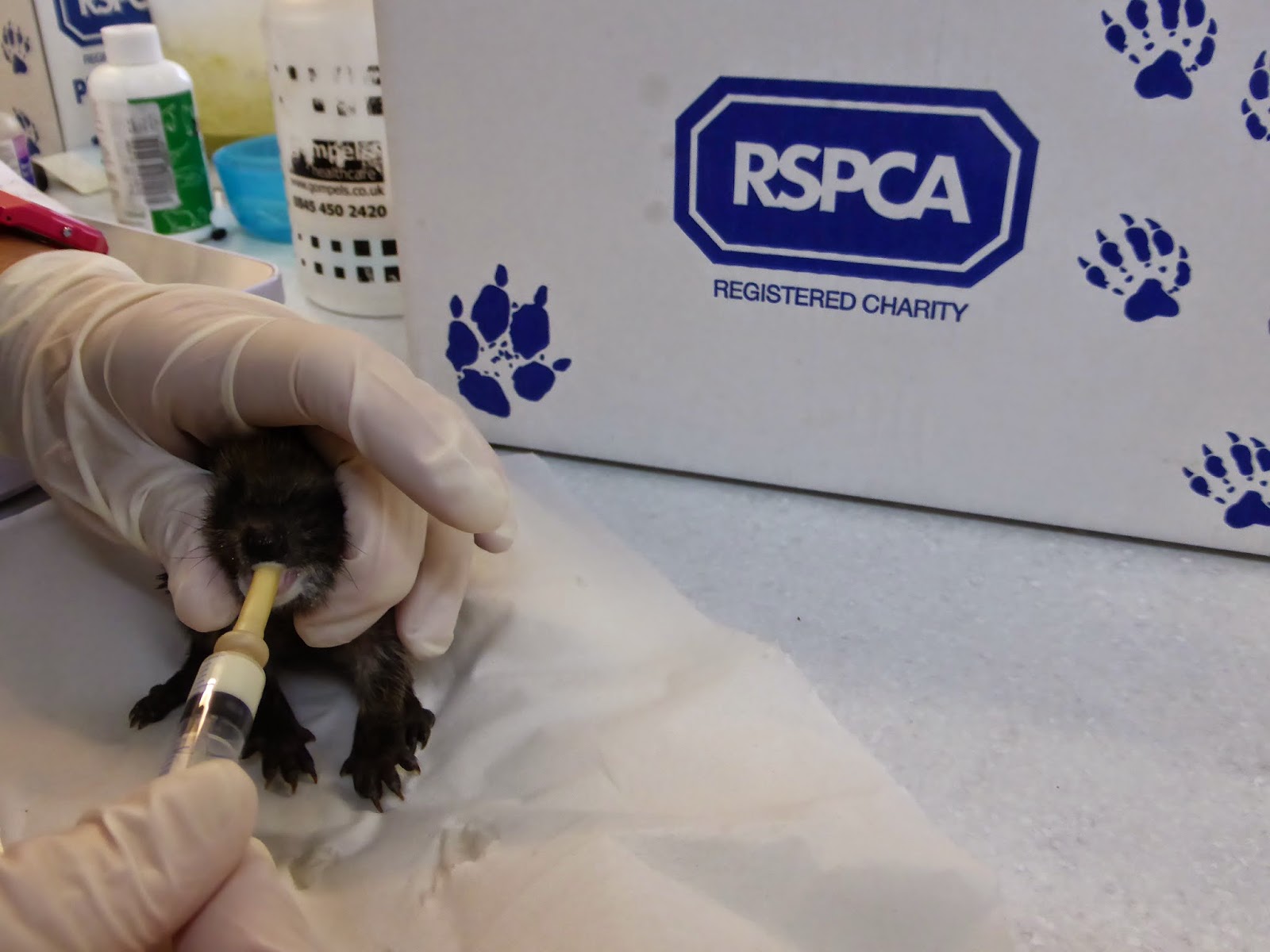Four prickly but very cute orphaned hoglets were brought into Stapeley by an RSPCA Inspector.
Estimated to be about two weeks old with eyes still closed. They would not have been able to survive on their own so the team will care for them until they are sufficiently large enough for release back into the wild.
Initially they were syringe fed a puppy milk formula six times a day but now 10 days after admission they have thankfully started to lap keenly at bowls of kitten meat and the formula - in some cases even getting into the bowls!
The very observant of you may notice from the photos a white dot on their spines, in different location on each hoglet. We use this method to individually identify them so that we can monitor how each individual is progressing. Their average weight is currently around 100g so the four hoglets still have a long way to go until they reach the minimum target release weight of 500g.
The hoglets have a few more important steps in the rehabilitation process to prepare them for a return to the wild but they are on their way. The next stage will be to wean them off of the milk formula but they have to triple their weight first. They will then be upgraded to an indoor pen to give them a larger space to roam around in and then finally to outdoor pens before being returned home.
I will follow the hoglets development at Stapeley until they are released as impressive young adult hedgehogs.
By
Michelle Bite
Sponsors of Stapeley Grange Wildlife Centre and Cattery
'Support RSPCA Stapeley Grange now by giving just £3, simply text RSPCA2 to 70007‘
Texts cost £3 + standard network rate
'Support RSPCA Stapeley Grange now by giving just £3, simply text RSPCA2 to 70007‘
Texts cost £3 + standard network rate

























